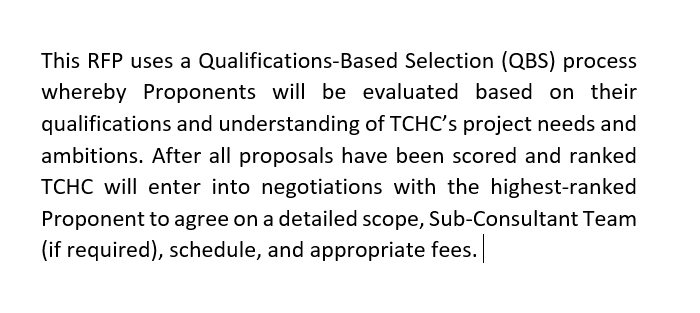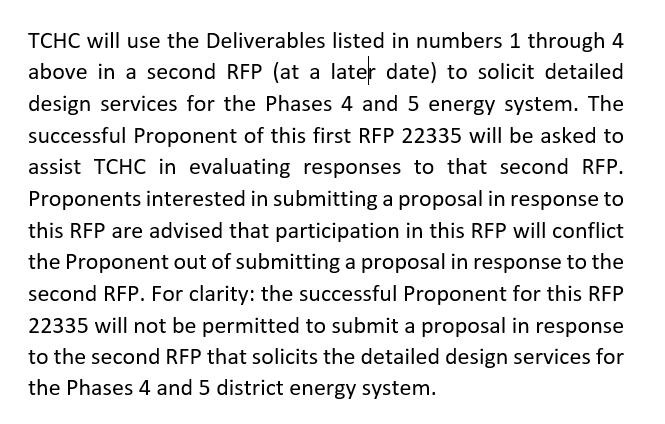
Last week, Toronto Community Housing issued a Request for Proposals for a “District Energy System Consultant - Regent Park Revitalization Phases 4 and 5”. torontohousing.ca/doing-business… This is an incredible opportunity. #TransformTO 🧵 1/10
First, some context. Here is the overall phasing plan for Regent Park, as well as the proposed massing and estimated construction schedule for Phases 4 & 5. 2/10 





Here is the existing district energy system, which is supplied by a main plant in the parking garage of 252 Sackville Street (Block 14), and a satellite plant on the roof of Block 16N (NW corner of Oak & Sumach) currently under construction. There is also a small microgrid. 3/10 





The goal is to expand the existing system, but it won’t simply be a matter of extending pipes. The new TCHC buildings (and later the market buildings) must achieve a GHGI of less than 5 kgCO2/m2 per the Toronto Green Standard, which effectively prohibits fossil gas heating. 4/10 

However, the current heating sources are fossil gas-based. These are photos of the boilers and the reciprocating engines (for combined heat and power) in the main plant. 5/10 



Therefore, TCHC is requiring respondents to also evaluate a smaller district energy system serving only Phases 4 & 5 (i.e. new node), as well as building-scale solutions (i.e. standalone). 6/10
Crucially, an expanded district energy system would be expected to reduce *overall* emissions, which means reducing the use of existing fossil gas equipment that is not yet at end of life. 7/10
Furthermore, there must be a business case. Regent Park Energy Inc. – the TCHC subsidiary responsible for the district energy system – needs to be profitable. TCHC also has development partners, so the low carbon solution needs to be cost-competitive. 8/10
To summarize: TCHC is seeking a consultant to devise a strategy that will reduce overall emissions at Regent Park while growing by 3 million square feet, and provide cost-competitive energy services to all buildings while maintaining energy system profitability. 9/10 

This RFP closes January 13. Please note, the successful proponent for this RFP is excluding from the future RFP for detailed design services. TCHC is using a Qualification-Based Selection procurement approach, which I think makes sense for such a complex project. 10/10 



• • •
Missing some Tweet in this thread? You can try to
force a refresh








